| АЛФАВИТНЫЙ УКАЗАТЕЛЬ КНИГ |
|
|
|
| АЛФАВИТНЫЙ УКАЗАТЕЛЬ АВТОРОВ |
|
|
|
|
[Joseph Brodsky emigrated to the United States after being expelled from his native Russia in 1972. He won the Nobel Prize for Literature in 1987 and was appointed Poet Laureate of the United States in 1991. His books of poetry include "A Part of Speech" (1977) and "To Urania" (1988), both published by Farrar, Straus & Giroux.]
---
JIM LEHRER: Joseph Brodsky appeared on the NewsHour in 1988, and talked about the thing he liked most about America; its spirit of individualism.
JOSEPH BRODSKY: (November 10, 1988) [In order to live in a different country, you have to love something there. You have to love something there. You have to love either the spirit of the laws or the economic opportunities, or the--well, history of the country, the language perhaps, literature. I happen to love the latter two, but you ought to have some sentiment. You also have to, to--in my case, well, there is something else. I simply loved all my life, loved is the stronger word, but I had a tremendous sentiment, partly conditioned of course by the reality of which--of where I grew up--for the spirit of individualism, for the idea of your being on your own in a big way. Well, so in a sense, in a sense when I came here, this is what happened, this is what I found.]
JIM LEHRER: Now two eminent poets on Brodsky and poetry in America today. Czeslaw Milosz won the Nobel Prize for Literature in 1980. He's a Professor Emeritus of Slavic Languages at the University of California at Berkeley. Robert Hass is the current poet laureate of the United States and a professor of English at Berkeley. Gentlemen, welcome to both of you. Mr. Milosz, how would you characterize Joseph Brodsky's poetry?
CZESLAW MILOSZ, Nobel Prize Winning Poet: (San Francisco) He was a very great poet and great successor of very great period of Russian poetry in the beginning of the 20th century. And he was my very close friend.
JIM LEHRER: Why does the word "great" apply to him?
MR. MILOSZ: Already since his beginnings and his trial in Russia the aura of greatness surrounded him. It's very difficult to define what it is.
JIM LEHRER: Mr. Hass, for those watching, listening now who have not read anything by Joseph Brodsky and this is the first time they're coming to his--he is coming to their attention, what would be your No. 1 recommendation as to what they should read to get the essence of this man as a poet?
ROBERT HASS, Poet Laureate: (San Francisco) I'd say to begin with, the first of his two books that were published in this country, Jim, a book called [A Part of Speech]. I guess the thing that should be said about Brodsky for us readers in English is that we're reading him in translation. He's a--he's a poet of immense verbal brilliance, lots of pyrotechnics, and when people try to bring that into English, what you often get is almost pyrotechnics, and almost brilliance, so partly you read his poetry in English as an act of faith, but I think the poems in the book [A Part of Speech] conveys the--his passion and his irony and a kind of a ferocious intelligence that will give people a sense of what he's like. His great work in English is the essays.
JIM LEHRER: The essays.
MR. HASS: And a book of his essays I think might be another place to get the quality of his mind and energy.
JIM LEHRER: In addition to the--reading the poetry.
MR. HASS: Yes.
JIM LEHRER: Yeah. When you use the term "pyrotechnic," are you referring to his uses of words,--
MR. HASS: Yes.
JIM LEHRER: --the way he arranges them, or his ideas?
MR. HASS: Both. All three.
JIM LEHRER: All three.
MR. HASS: But mostly, mostly the, the--he puns a lot. He plays a lot with language. He surprises with rhyme. There isn't much like him in American poetry right now.
JIM LEHRER: Yeah. Mr. Milosz, what was it about Joseph Brodsky that the Soviet authorities didn't like, that causes them to put him in, in--to try him and then put him in prison and then eventually to exile him?
MR. MILOSZ: You know, his attitude towards the world was sort of detachment and he really didn't acknowledge the existence of those authorities. He went his own way, and that was extremely irritating.
JIM LEHRER: And that's why--that was the only thing? I mean, he was not--he wasn't a--what you'd call a dissident poet, was he, in the--in what we normally refer to as people who are writing poetry against the state and all of that?
MR. MILOSZ: Not at all. He considered it below his dignity to quarrel with the state. He simply considered that the state is something ruled by low kind of individuals.
JIM LEHRER: Yeah. Mr. Hass, I read somewhere today that in describing where Joseph Brodsky came from, of course, which was Russia, they described it as the land of the poets. Are we a land of poets?
MR. HASS: Oh, I think we are. You know, one of the things that Joseph said about his years in Russia reading American poetry was that American poetry was for him a long lecture on autonomy, on freedom, and when he came here, he brought with him a passion for English language poetry, and he was one of the people who's made this country a sort of dazzling center of poetry in the world during the last twenty or thirty years.
JIM LEHRER: Mr. Milosz, do you see the United States as a dazzling place for poetry?
MR. MILOSZ: Yes. I must say that Joe Brodsky was very happy being in America, and I consider that America is better for poets than, for instance, Western Europe.
JIM LEHRER: Now, why is that? Because I say--the common thing here is that we are not a poetic people, that we are very pragmatic and we read our stories but we don't read our poetry, but you don't see it that way.
MR. MILOSZ: Well, judging by interest in poetry on the campuses, we would say that this is not quite true.
JIM LEHRER: Mr. Hass, I read today also that Brodsky said "that poetry is the only insurance we've got against the vulgarity of the human heart." And, in fact, I mentioned that in the News Summary at the beginning of the program. Is that a basic truth for you poets?
MR. HASS: Oh, I think it's a basic truth. You know, Yates, a great Irish poet whom Joseph loved, said it another way, he said, "We have filled our hearts with fantasy and our hearts grow brutal on the fair." One of the great things about poetry is that besides being an enchanter, it's a disenchanter, and a truth-teller, and Brodsky more than any other poet was one of those who managed to disenchant us out of the stupidity of our fantasies, and create more durable ones.
JIM LEHRER: Yeah. Would you agree with that, Mr. Milosz, that his poetry had that ability?
MR. MILOSZ: Yes. Yes. I consider that, that through his poetry one can apply the epithet sublime.
JIM LEHRER: Sublime.
MR. MILOSZ: Yeah. It's a very high praise, but undoubtedly his poetry is, is such. The trouble is, you see, and even I wonder his poetry is written in Russian, and it is in a way, its strength is linguistic, how it goes through translations, that's, that's another thing, not always go through translations.
JIM LEHRER: Sure. That was a point that Mr. Hass made a minute ago. Mr. Hass, you have a book of Joseph Brodsky's poetry there in your hand. Why don't--why don't you read a little bit. Tell us what it is, and give us--set it up, if it requires anything, and then read it, and we will say good night to you listening to Joseph Brodsky.
MR. HASS: Yes. Well, if Joseph was sublime, he was also amazingly clear and tough-minded, and here's a poem that--part of a poem sequence called "A Part of Speech" that might be a place to end:
"...Life, that no one dares
to appraise, like that gift horse's mouth,
bares its teeth in a grin at each
encounter. What gets left of a man amounts
to a part. To his spoken part. To a part of speech."
JIM LEHRER: Mr. Hass, Mr. Milosz, thank you very much for being with us tonight.
MR. HASS: Thanks, Jim. It's a pleasure to be here.
___
Peter Vail. Poets of the Empires' Outskirts
(A Conversation with J. Brodsky about Derek Walcott)
When Derek Walcott became the Nobel Prize Laureate for Literature for 1992, Joseph Brodsky was quoted in all the papers' announcements: "This is the best poet among those writing in English." What is important is not that one Nobel Prize Laureate praised another, but the similarities between these names and these literary figures, the fact that Brodsky said his words some ten years earlier, that he wrote about him an essay in the book "Less than One", that they are friends and, finally, that their poetic destinies resemble each other.
Both are splinters of an empire. Joseph Brodsky was born in Leningrad, is living in New York, an émigré from the USSR, a citizen of the USA, a Russian poet, an American poet-laureate, an English-language essayist. Derek Walcott was born in St. Lucia, a British colony which is an island of the archipelago of Lesser Antillian Islands in the Caribbean Sea, spent his youth in Trinidad, is living in the USA and is a professor of Boston University.
As soon as his island received independence, Walcott was one of the first to exchange his status from being a subject of the British Empire, on which the sun never sets, to being a citizen of St. Lucia, which is twenty five miles long.
It is amazing, but this island, whose size on the globe is that of a safety-pin jab, home to a hundred and fifty thousands residents, produced already a second Nobel Prize Laureate, becoming the absolute world champion in the number of Swedish Prizes per population. The first was the economist Arthur Louis, and if we take into account the fact that the prosperity of this island depends on a single industry -- export of bananas -- a prize in economics seems ironic. However, the poetic nature of the Caribbean Islands was never doubted. Alexo Carpenter called these places "magical reality", and Andre Breton described them as "surrealist" (maybe this in part could explain the prize given to Louis?). Walcott's friend from youth was V. S. Naipol -- one of the most brilliant English-language prose writers of our time, who was born in Trinidad to a family of émigrés from India. In Derek Walcott's own veins British, Dutch and Black blood mingle, both his grandmothers came from families of slaves. His first language was the Creole dialect. English, in which Walcott reached virtuosity, he studied in his youth as a foreign language. How can we not add here that the Russian Jew Brodsky amazes many Americans and English people with the depth of his understanding of the English poetic language. Thus when Derek Walcott was awarded the Nobel Prize for Literature, the most logical thing seemed to speak about him to Joseph Brodsky, who himself was awarded the Nobel Prize five years earlier.
-- [You have a rather good habit, instead of making friends with Nobel Prize Laureates, you make friends who become Nobel Prize Laureates.]
-- I am indeed extremely happy. Happy that it is actually Derek who's received it.
-- [How did you get to know each other?]
-- This was in 1976 or 1977. There was such a wonderful American poet, Robert Lowell. We became friends, so to say. One day we sat and leisurely discussed who is worth what in poetry in English. And he suddenly showed me a poem by Derek Walcott, this was the long poem "Starappled Kingdom." This made a quite strong impression on me. Yet on the other hand I thought: well, a wonderful poem, so what? Everyone writes wonderful poems. After some time Lowell died and me and Derek met for the first time at his funeral. And it appeared that we both have the same publisher, Roger Straus (of the New York publishing house "Farrar, Straus and Giroux," -- P.V.). Now he has published books of twenty Nobel Prize Laureates, if we add Derek. So in the publishing house I took Walcott's works and then I understood that that poem was not, as they say, a coincidental creative success, it was not an exception. I especially liked the long, book length, autobiographical work in verse "Another Life."
You know, in literature there exist, especially in a certain stage, such fundamental (in a certain period) works. We have Blok's "Revenge", or later Pasternak's "Lieutenant Shmidt", or some other works. These found in poetry what could be seen as a new climate. "Another Life" is such a new territory. Not to mention the fact that the territory described in this poem is literally new, both in the psychological and in the geographical sense. And the methods of description are somewhat specific. later, in 1978 or 1979, both of us, Walcott and I, found ourselves to be members of the jury of the journal "International Literature Today", which is published in Oklahoma and awards a prize once in two years. Eugenio Montale, Elizabeth Bishop and others were awarded this prize. The jury consisted of thirty people, each of whom proposes his or her candidate. I proposed Milosh, and Walcott proposed Naipol, who is almost his countryman. By the way, I heard rumours that in Stockholm their positions were also head-to-head, and Walcott won. They are rather good friends.
-- [A Nobel Prize will not be given so soon again to the Caribbean region, and Naipol, although he is two years younger than Walcott, still is already sixty.]
-- But this is not important. In Oklahoma the final stage is based on the Olympic principle, and the contest was between Milosh and Naipol. Milosh won, and I understood that Walcott gave up his candidate for mine. I asked him why he did so, and he answered -- and this shows what kind of a poet Walcott is, -- he said, "you see, I gave up my candidate absolutely not for the reason you may imagine. The matter is not Eastern Europe, Nazism, The Holocaust and so on. What happened and happens today in our archipelago is by no means less than the catastrophes of the Poles or the Jews, especially in the moral sense. The criterion, said Walcott, is totally different: I like it when behind what I read -- in poetry or in prose -- I hear a certain rumble. The rumble of the Spheres, one may say. And in Naipol I don't feel it, while in Milosh I do." From then on -- not from that sentence, but from the Oklahoma period in general -- we became great friends.
-- [Do you use exactly this word? The word "friend" in Russian is stronger than this word in English.]
-- You know, he is a person of incredible warmth. That is, radiance glows from him. Moreover, this is not any kind of extrasensorial thing, these are simply, in fact, waves of warmth, right? When I am with him, I am always inside this field. In fact it is as if he was too much warmed by the sun -- considering where he comes from.
-- [I was once in the company of Walcott and other people and I remember well that there was always laughter around him.]
-- This is true. He is a person with a fantastic sense of humour. Moreover, he is very much alive, there is always something new on his mind. And altogether I never remember that he would have to rest, be ill -- heavens forbid! -- be bored, rot. For the last twenty years he is the closest person to me among English speakers. We were together in the most varied situations in this hemisphere, and also in the other one.
-- [In all the articles accompanying the conferment of the Nobel Prize your words are quoted: "the best poet of the English language"...]
-- I do indeed think so. And they are bound to quote me because I wrote about him, and a lot. Not that I am proud of it... Although yes, I am proud that it is I. I am proud and even may boast of it.
-- [In the book "Less than One" in the article about Walcott, "The Sound of the Tide", you write that Walcott is outside literary schools. So in what is expressed his, as you put it, "fundamental" significance? What are the "new territories" you mention?]
-- In this small article I paraphrase Mandelshtam: "This is already the fourth century that I (...) dash against Russian poetry." Walcott was dashing against English poetry in a similar way and now has finally dashed against it totally. How is he remarkable? It is in the classical manner which does not constitute an alternative to modernism but rather absorbs modernism. Walcott writes in meter, is exceedingly varied in rhymes. I think that there is no person who rhymes in English better than Walcott. Moreover, he is very colourful. And in fact colour is spiritual information. When we talk about animals, mimicry is more important than adaptability, right? This means something. There is a rather long history behind all that -- at least evolution, and this is not a small thing, it is in fact longer than history. Walcott is an "Adam" poet, that is he came from a world in which not everything has yet been given a meaning and a name. That world was inhabited not so long ago. Not yet totally colonised by Westerners. By whites. There the majority uses concepts which, to a certain degree, are still not completely based on experience and consciousness.
-- [We have witnessed something similar with the Latin American novel, which is closer to the myth than refined Europe or North America.]
-- Derek by race is black. It is true that he has a mix of many elements. Yet when you are born as a subject of the British empire and you are coloured, you find yourself in a quite remarkable situation. If your vocation is culture, then your choice is very limited. Either to be submerged in nostalgia for some non-existing roots, because there is no tradition whatsoever except oral tradition, or to go out in search of asylum in the culture of your masters. The first is comfortable, because there is nothing there, no terminology, only sentimentality.
-- [And also you are the first there. When I was young I regretted not being born to one of the tiny northern nations: by the age of thirty, one may have a collection of works published and everything flows as a matter of course.]
-- In any case you find yourself only momentary support. The audience and so on. And you do not have to think, it is more important that you feel.
-- [In the other case you describe, the comptetition is totally different, of course.]
-- Everything is more complicated. You find yourself inside the history of a culture which has to be absorbed, with which to struggle and so on. A huge world in which much has been formulated. That alone can crush you. Not to mention that you get constant reproaches from your countrymen, that you sold yourself out, as we say, to the Bolsheviks.
-- [That is, in that case, to the Big White People.]
-- Big White People, yes. A big culture. But such is the power and the intensity of Walcott's talent, such as Naipol's, that they, coming from nowhere, not just absorbed the English culture. Their desire to find themselves a place and find a world order was such that instead of finding themselves asylum in the English culture they drilled through it and came out the other side, even more strangers than they were.
-- [They did not level themselves with a powerful tradition, but only hardened themselves and strengthened even more their uniqueness. That is, before this uniqueness was given to them, simply by virtue of their origins -- Caribbean influence, African, Indian -- and later it became real individualism. Yet Walcott and Naipol write in English exactly because of the same Big White People.]
-- These are already not the same people. And that world is already not the same. Thanks to such people as Walcott and Naipol, by the way. And Derek received a classical English education. A classical colonial English education.
-- [By the way, this St. Lucia is an amazing place. The gross state product per head is ten times less than in the States, yet literacy is ninety percent, a high percent in universal terms.]
-- Derek studied in the University of the West Indies, later he was hanging around in England, there were many different paths. Yet his zone, his sphere became poetry.
-- [An utterly individualist activity. But Walcott is also a playwright.]
-- He was occupied in writing poetic dramas, because a) he was interested in the theatre and b) in order to give work for many talented people amongst his countrymen. In his plays there is much music, calypso, whatever. Such a temperament. And also the passions there are absolutely Shakespearean.
-- [It seems to me that Derek Walcott is a plenipotentiary representative of a certain Pleiad, characteristic of our time. First of all, he answers in the best possible way to your lines: "If you happen to be born in an empire, it is best to live in a remote province near the sea." Here is Walcott, here is Naipol, who are both from the Caribbean Islands. The previous year it was Nadine Gordimer from South Africa who received the Nobel Prize. In South Africa there is also Kotzie, whom you yourself called more than once one of the best English language prose writers. There is Salman Rushdie. In Stockholm, it is rumoured, the Irish poet Seamus Heaney is discussed as a candidate. All this is prose and poetry in English, and all of them are not English people, not Americans, all are outsiders. What is happening?]
-- What is happening is what Yates mentioned before: "The centre cannot hold." And it indeed cannot hold any more.
-- [An empire shines in its ruins?]
-- Not so much the ruins as the outskirts. And the outskirts are wonderful in that it is maybe the end of the empire, but is also the beginning of the world. The rest of the world. So here in the outskirts of the empire, somewhere in the Caribbean Islands, a person appears, who starts to read Shakespeare. Shakespeare and all the rest. He does not see legions, but he sees waves and palm trees, and coconuts on the beach, like helmets of a dead landing soldier.
-- [Walcott writes thus: "The sea is our history." And in another place: "My people appeared like the sea, without a name, without horizons." And we, by the way, also have, in a north-western corner of another empire, another sea, which also has a fundamental significance, if we judge by your poem:
I was born and grew up in the Baltic marshes, by
Zinc-grey waves, that always came running in twos
And hence all the rhymes, hence that faded voice,
Curling among them, like wet hair.*(1)
If the outskirts of an empire of which the centre no longer "holds", an empire which is collapsing, like ours, or that has already collapsed, like the British empire, if all that is so productive, shouldn't we wait for surprises from the Russian outskirts?]
-- Let's hope something of this kind will happen. Although our outskirts are not distant from each other geographically, they constitute some continental whole. This is why such a feeling of being alienated from the centre does not exist. And this is, in my opinion, a very important feeling. And English speaking people should thank geography for the fact that these islands exist. Yet still in the Russian case, too, something of this kind could happen, we should not dismiss it.
-- [It seems to me that the youth of this culture, which -- together with its traditionality -- a person from the outskirts of the empire carries, is linked with an explicable courage, not to say impertinence. Here, for example, is Walcott who ventured into an epic: his 32 pages "Omeros" is a transferring of the "Iliad" and the "Odyssey" into Caribbean manner. An epic in our time -- is it not anachronistic?]
-- I don't know. It is not for the writer. It is not for the reader.
-- [Why is it that a contemporary epic does not, or almost does not, exist?]
-- This is because nobody has guts. Because we are more and more drawn towards the smaller forms: it is all natural. People haven't got time -- neither the writer nor the reader. And of course in attempting an epic there is an instant of impudence. Yet "Omeros" is a remarkable poem, at places it is of a fantastic nature. But the real epic of Walcott is "Another Life".
-- [And a traditional question: to what extent is Derek Walcott acquainted with Russian literature?]
-- He knows Pasternak and Mandelshtam perfectly well, in English translations, and depends on them internally very much. To a certain extent he himself as a poet is placed between them. Walcott is a poet of texture, of detail, and this makes him close to Pasternak. And on the other hand -- the despairing tenor of Mandelshtam... I remember that time in Oklahoma where we sat, chatting and drinking. The thing was that every member of the jury was given a bottle of "Ballantine" whisky, every day, and Derek at that time already didn't drink and gave it to me. And I entertained him by translating from memory, line by line, various poems by Mandelshtam. I remember what a strong impression this line made on him: "In the rustling of hundred rouble notes by the lemon Neva/ Never, never did a gypsy woman dance for me." Derek was simply beyond himself with enthusiasm. And later he composed a poem, dedicated to my humble person, where he makes use of these lines. He also helped me more than once in translating my own poems with me.
-- [I think that what attracts Walcott to the poems of Mandelshtam and to your poems is their classicist nature. It is not for nothing that he himself is so drawn towards antiquity and he likes so much to compare his archipelago to the Greek archipelago.]
-- This is true, he has a notably strong tendency to think about his archipelago, the West Indies, as resembling Greece. He turns every page, like a wave, backwards.
*From the book: "Iosif Brodskii: trudy i dni" ("Joseph Brodsky: Labours and Days"), edited by Lev Loseff and Peter Vail (Moscow, 1998).
*Translated from the Russian by Anat Vernitski, 1998. Reproduced with permission. (-- S. W.)
Страницы: 1 2 3 4 5 6 7 8 9 10 11 12 13 14 15 16 17 18 19 20 21 22 23 24 25 26 27 28 29 30 31 32 33 34 35 36 37 38 39 40 41 42 43 44 45 46 47 48 49 50 51 52 53 54 55 56 57 58 59 60 61 62 63 64 65 66 67 68 69 70 71 72 73 74 75 76 77 78 79 80 81 82 83 84 85 86 87 88 89 90 91 92 93 94 95 96 97 [ 98 ] 99 100 101 102 103 104 105 106 107 108 109 110 111 112 113 114 115 116 117 118 119 120 121 122 123 124 125 126 127 128 129 130 131 132 133 134 135 136 137 138 139 140 141 142 143 144 145 146 147 148 149 150 151 152 153 154 155 156 157 158 159 160 161 162 163 164 165 166 167 168 169 170 171 172 173 174 175 176 177 178 179 180 181 182 183 184 185 186 187 188 189 190 191 192 193 194 195 196 197 198 199 200 201 202 203 204 205 206 207 208 209 210 211 212 213 214 215 216 217 218 219 220 221 222 223 224 225 226 227 228 229 230 231 232 233 234 235 236 237 238 239 240 241 242 243 244 245 246 247 248 249 250 251 252 253 254 255 256 257 258 259 260 261 262 263 264 265 266 267 268 269 270 271 272 273 274 275 276 277 278 279 280 281 282
|
|


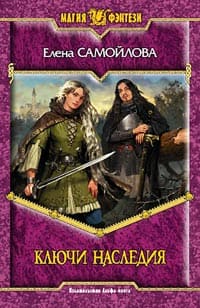
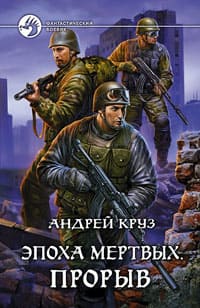
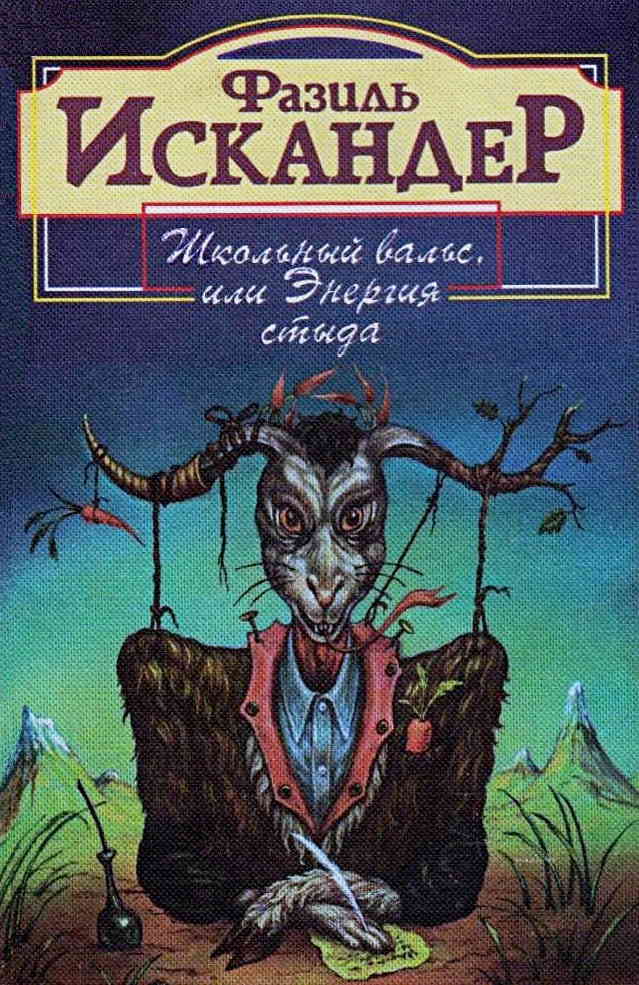
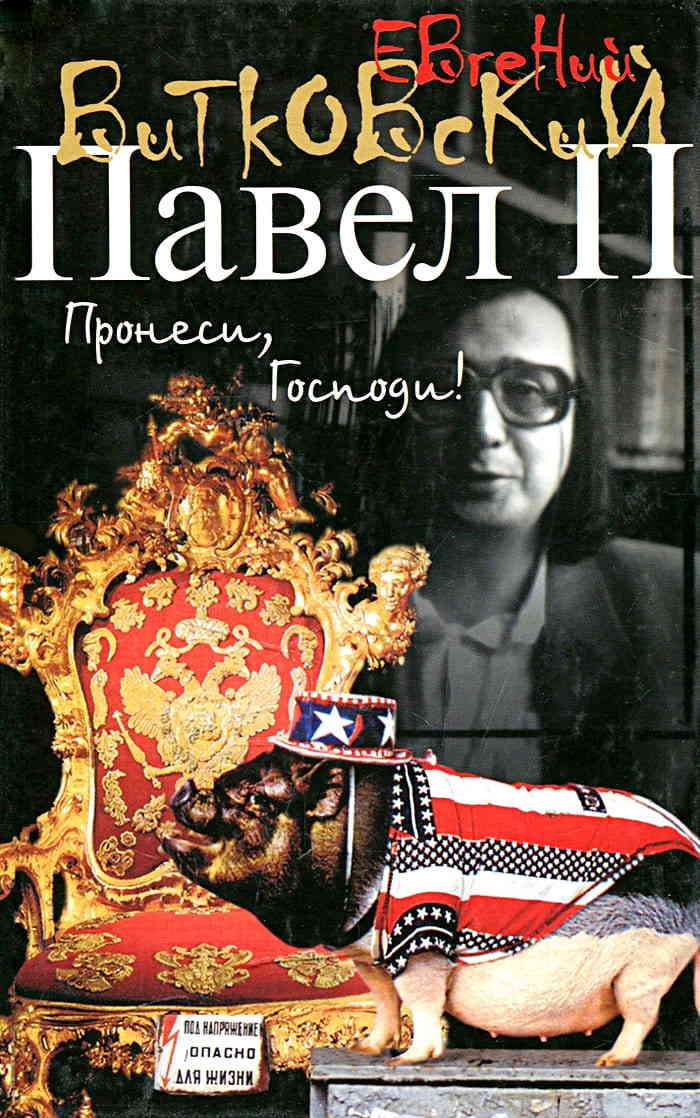
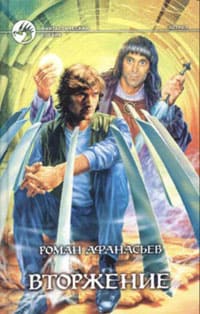 Афанасьев Роман
Афанасьев Роман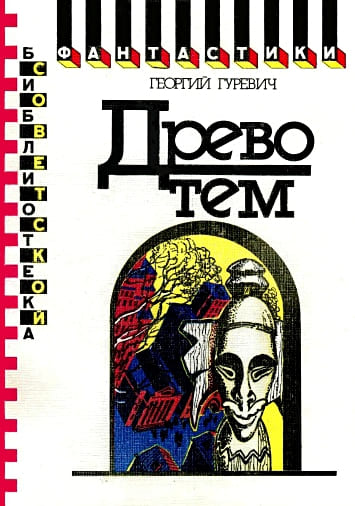 Гуревич Георгий
Гуревич Георгий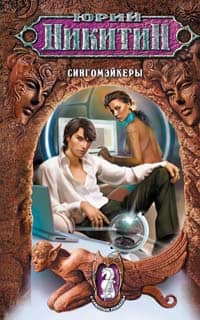 Никитин Юрий
Никитин Юрий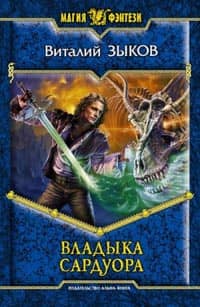 Зыков Виталий
Зыков Виталий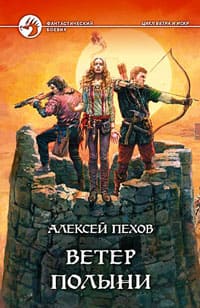 Пехов Алексей
Пехов Алексей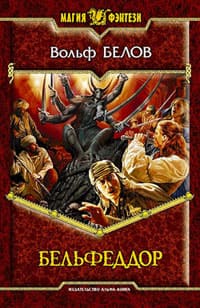 Белов Вольф
Белов Вольф